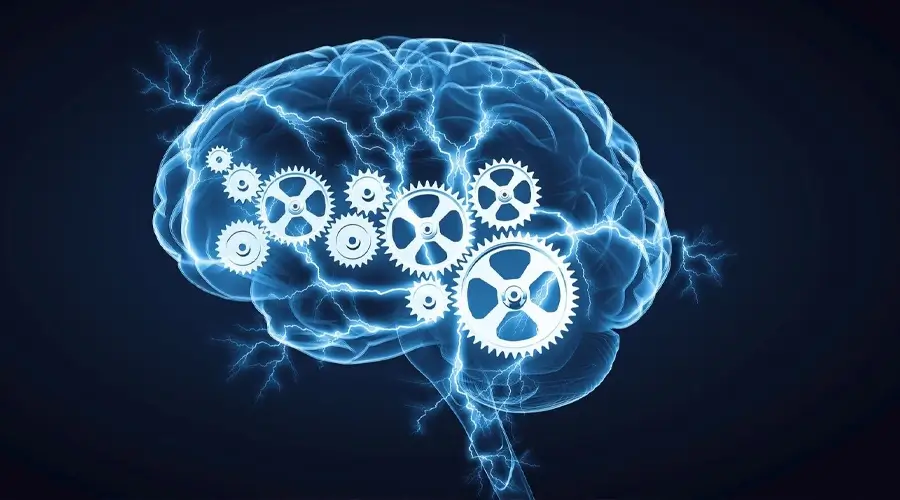In an age of swipe-lefts, voice notes, and AI-powered everything, it’s easy to wonder: why do so many people still turn to pen and paper?
Let’s be real — you probably have three note-taking apps on your phone, and yet, there’s something deeply satisfying about cracking open a fresh notebook and letting the ink flow. It’s not nostalgia. It’s not just aesthetics. It’s a need for mental stillness in a world that’s always buzzing.
Modern life is noisy. Between back-to-back meetings, a never-ending stream of content, and constant notifications, our brains rarely get a chance to slow down. We absorb so much, but retain so little. We think fast, but focus poorly. That’s where journaling quietly steps in — not as a productivity hack, but as a sanctuary for your thoughts.
People don’t just journal because it’s “trendy” or “therapeutic.” They journal because it works. Especially when it comes to memory and cognitive function, something magical happens when you write things down — and no, we’re not talking about making to-do lists.
In the pages that follow, we’re going to explore how journaling and memory are more connected than you think — and why your brain might just be craving a little ink therapy.
What Happens in Your Brain When You Journal
So, what’s the real deal between journaling and memory? Why does something as simple as writing down your thoughts have such a noticeable impact on how clearly you think — and how much you remember?
Let’s zoom in.
When you sit down to journal, your brain isn’t just “offloading” thoughts. It’s firing up. Big time. Several key areas in your brain light up during the act of writing, especially the hippocampus, prefrontal cortex, and pathways associated with neuroplasticity.
The Hippocampus: Your Memory Librarian
This small, seahorse-shaped structure deep in your brain is crucial for forming and retrieving memories. When you write reflectively — not just mindless doodling — your hippocampus goes into organization mode. It tags, sorts, and stores information more effectively. In other words, writing helps your brain decide what’s worth remembering.
The Prefrontal Cortex: Your Inner Executive
This is the part of your brain that handles planning, reasoning, and focus. Journaling forces the prefrontal cortex to kick in — you’re analyzing, making sense of emotions, and structuring chaotic thoughts into linear narratives. That’s mental strength training, disguised as self-expression.

Neuroplasticity: Rewiring in Real-Time
Every time you engage in journaling, you’re reinforcing neural pathways. Think of it like brushing fresh snow off a hidden trail: the more you walk that path, the clearer it becomes. This is how habits form, how thoughts get structured, and yes — how memory improves.
The beauty is, this doesn’t require hours of writing. Just a few mindful lines a day can stimulate your brain in a way passive scrolling or even typing rarely does. Writing by hand activates more of your sensorimotor network — helping you encode experiences more deeply into long-term memory.
So next time you wonder whether journaling really “does anything,” remember: while you’re scribbling down your day, your brain is hard at work building a smarter, sharper, more resilient version of you.
Journaling as Mental Resistance Training
Think of your memory like a muscle. You don’t just wake up one day with rock-solid recall — you build it. And like any muscle, your brain needs resistance, repetition, and rest to grow stronger.
Enter: expressive writing.
This isn’t about scribbling grocery lists or writing “Today was fine” every night. It’s about capturing experiences, processing emotions, and reflecting on moments that matter. This type of writing acts as mental weightlifting — especially for your memory.
Here’s how it works:
When you write about your day — not just what happened, but how it made you feel, what you noticed, and why it stuck — you’re engaging deeply with the information. This process activates semantic encoding (understanding) and episodic recall (reliving), which together increase your chances of long-term memory retention.
Real-Life Example:
Let’s say you journal tonight about a random Tuesday — you describe how the light hit the sidewalk, the offbeat joke your coworker made, the smell of cinnamon in your coffee. A week later, someone mentions “Tuesday,” and your brain does something wild: it pulls up those vivid details. You didn’t memorize them. You experienced them again through writing — and that made them stick.
This is why daily journaling and memory go hand in hand. You’re not just documenting your life — you’re reinforcing it.
And the best part? The more you do it, the easier it becomes. Over time, your brain starts picking up on more details automatically, because it’s been trained to pay attention. That’s neuroplasticity in action — and it’s powered by your pen.
So if you’ve ever said, “I have a terrible memory,” maybe it’s time to stop blaming your brain and start training it. Your journal can be your mental gym — no membership required.
Clarity Is Power: Boosting Cognitive Function
Let’s face it — most of us live in mental clutter. Open tabs in our minds, unfinished conversations, ideas fighting for attention. And when everything feels urgent, nothing truly gets done.
That’s where writing becomes more than self-expression. It becomes mental prioritization.
Journaling — especially reflective writing — acts like a mental decluttering tool. It helps you sift through the noise, organize your thoughts, and get painfully honest about what actually matters.
Writing as a Mind Filter
When you write, you force your brain to slow down. You can’t jot down 15 racing thoughts at once, so you begin to filter. This filtration process nudges the prefrontal cortex into action — helping you weigh options, recognize patterns, and gain insights.
In other words, journaling turns chaos into clarity.
And clarity? That’s the birthplace of better decision-making.
You start noticing trends in your thoughts: repeated stressors, unresolved emotions, recurring goals. These insights — which easily slip through the cracks in everyday mental overload — become visible when captured on paper.
Less Cognitive Overload = More Mental Energy
Ever felt mentally “fried” even though you haven’t done much? That’s cognitive overload — when your brain juggles too many loose ends. Journaling helps you externalize that noise. You’re not carrying everything in your head anymore. Your journal becomes your external hard drive.
Think of it like this:
The less your brain has to store, the more it can solve.
So if you’re stuck in indecision, spiraling with thoughts, or just mentally foggy — don’t overthink it. Underrated as it may seem, a few lines of journaling might be exactly what your brain needs to recalibrate.
Journaling Methods That Actually Work
Let’s be honest: not all journaling is created equal.
Scribbling random to-dos or venting once a month doesn’t cut it if you’re looking to actually boost memory or enhance cognitive function. You need structure — not rigid, boring structure — but intentional methods that sync with how your brain works.
Here are three powerful, research-backed (and totally doable) journaling techniques that can seriously upgrade your mental game:
The 5-Minute Memory Recall
Perfect for: Improving memory retention
When to use: End of your day
This method is exactly what it sounds like. Set a timer for five minutes and try to recall as many details as possible from your day. Not just big events — focus on small, often-overlooked moments: the color of someone’s shirt, a phrase you overheard, the exact emotion you felt during lunch.
Why it works:
You’re training your brain to notice more, store more, and recall more. Over time, this sharpens your observational skills and activates episodic memory — the kind tied to personal experiences.

Morning Pages
Perfect for: Enhancing focus and mental clarity
When to use: First thing in the morning
Made popular by Julia Cameron in The Artist’s Way, morning pages are three full pages of free writing — no rules, no judgment. Just write whatever’s on your mind: dreams, thoughts, worries, plans.
Why it works:
This method clears out mental junk before your day begins. It lowers cognitive load, boosts emotional processing, and makes room for focused, intentional thinking. Think of it as a warm-up for your mind.
Thought-Dumping for Sleep
Perfect for: Reducing mental chatter before bed
When to use: Just before sleep
Can’t sleep because your brain won’t shut up? Thought-dumping is your go-to. Open a notebook and pour it all out — anything that’s lingering, unfinished, or nagging you. No structure needed, just release.
Why it works:
Your brain wants closure. When you journal your worries or pending thoughts, your mind feels acknowledged — and lets go. The result? Better sleep, improved next-day recall, and way less 2 a.m. overthinking.
The Science Backs It Up
If you’re the kind of person who likes proof, you’re not alone. Good news: journaling and memory aren’t just connected in theory — there’s solid science behind it.
Let’s keep it short, sharp, and fascinating.
Cambridge Study on Expressive Writing
A landmark study by the University of Cambridge explored the effects of expressive writing on brain function. Participants who wrote about emotionally significant experiences for just 15–20 minutes a day showed improved working memory, reduced anxiety, and even enhanced immune response.
The key? They weren’t just reporting events — they were making sense of them.
This kind of deep processing boosts long-term retention and rewires the brain’s emotional centers. In short: journaling makes your brain not only remember more — but feel better while doing it.
UCLA Research on Labeling Emotions
UCLA neuroscientists found that simply labeling emotions in writing — “I feel frustrated,” “I’m anxious about tomorrow” — reduces activity in the amygdala (your fear center) and increases control from the prefrontal cortex.
Translation? You think clearer, stress less, and make smarter decisions. All from just writing what you feel.
Journal Therapy and Cognitive Resilience
Several studies in clinical psychology now use journaling as part of therapy for trauma, ADHD, and even early-stage dementia. Why? Because writing strengthens cognitive pathways, enhances self-awareness, and builds mental resilience over time.
These aren’t just fun facts. They’re reminders that when you sit down to journal, you’re not “wasting time” — you’re training your brain.
Science says so.

Real Talk: What’s in It for You?
Let’s strip away the brain scans, fancy terms, and studies for a minute.
Let’s talk you.
If you’ve ever caught yourself saying things like:
“I’m so forgetful lately.”
“I can’t focus on anything for more than five minutes.”
“Why do I always make the wrong decision?”
You’re not broken. You’re just overloaded. Distracted. Disconnected from your inner compass.
And daily journaling habits can help — not in a self-help cliché kind of way, but in a real, neuro-backed, practical kind of way.
“I’m so forgetful.”
That’s not a character flaw — it’s a result of unprocessed input.
When you journal daily, even for five minutes, your brain starts forming memory anchors. Writing forces you to relive, recall, and reinforce what happened. Over time, this turns into stronger memory retention — no flashcards required.
“I can’t focus.”
The modern brain is scattered — social media, multitasking, decision fatigue.
Journaling brings your attention back inward. It trains your mind to finish one thought before chasing the next. It’s like a digital detox for your cognition — just you, your words, and a pause button on the chaos.
“I always make the wrong decision.”
Bad decisions often come from mental noise, not lack of intelligence.
Reflective journaling helps you see patterns in your behavior. It reveals the “why” behind your choices — the stuff you don’t notice in real time. When you get to know your own triggers, doubts, and motivations, your decisions start sounding a lot more like wisdom.
Bottom line
Journaling isn’t a productivity hack for overachievers.
It’s a life tool — for people who want to slow down, think clearer, and remember who they are in the middle of all this noise.
Start small. Stay consistent.
And give your brain the breathing room it’s been begging for.
Conclusion
In a world overloaded with noise, speed, and scattered thoughts, journaling offers a rare kind of clarity — one that doesn’t come from apps or algorithms, but from you. It’s not about being a writer; it’s about giving your mind space to breathe, remember, and reconnect. Whether you’re struggling to focus, trying to sharpen your memory, or just looking to make better choices, your journal can be your quietest — and most powerful — ally. So grab a pen. Not because you have to, but because your brain deserves it.
Capture your thoughts with clarity — let VERBOAI and AI guide your journaling journey.



